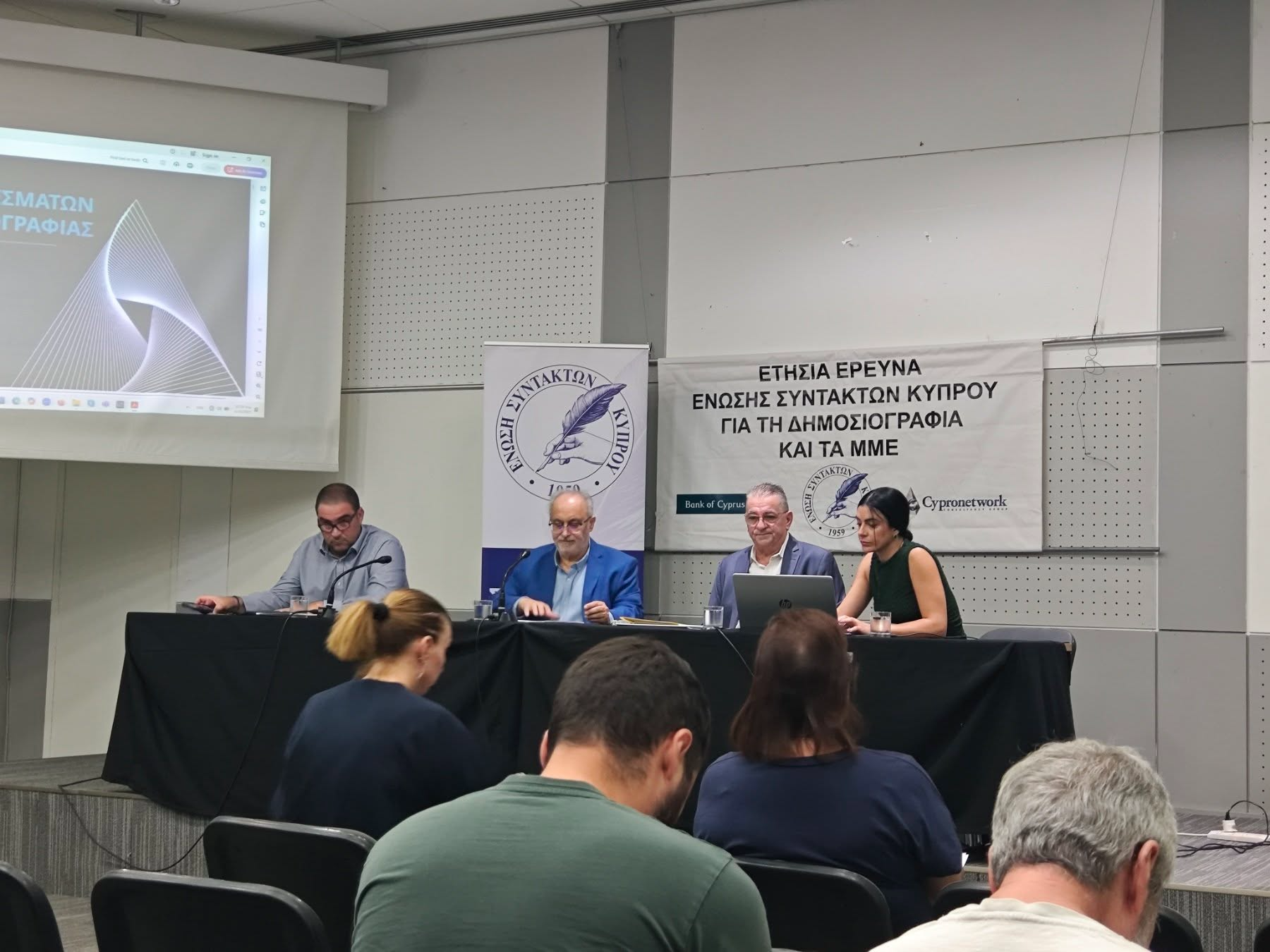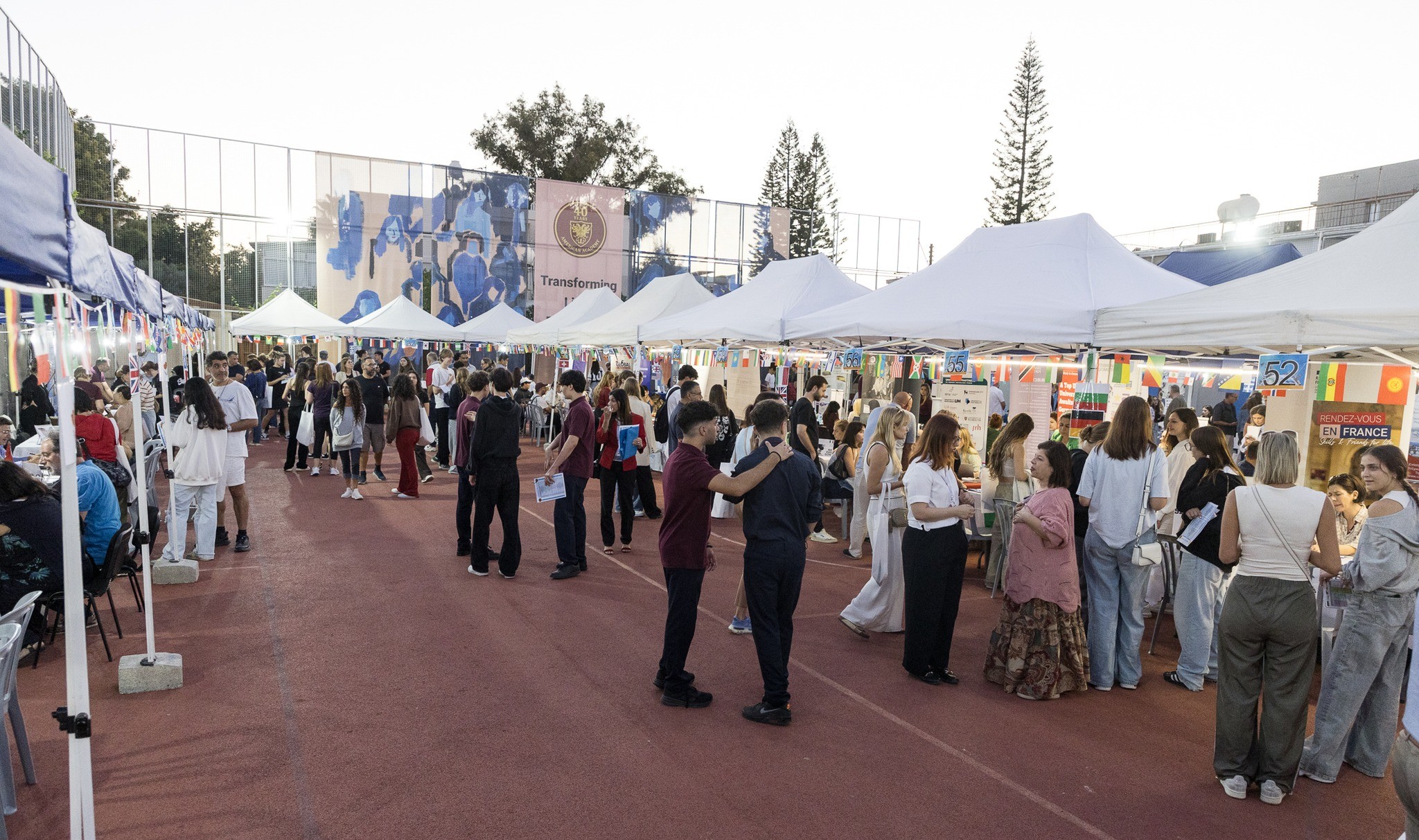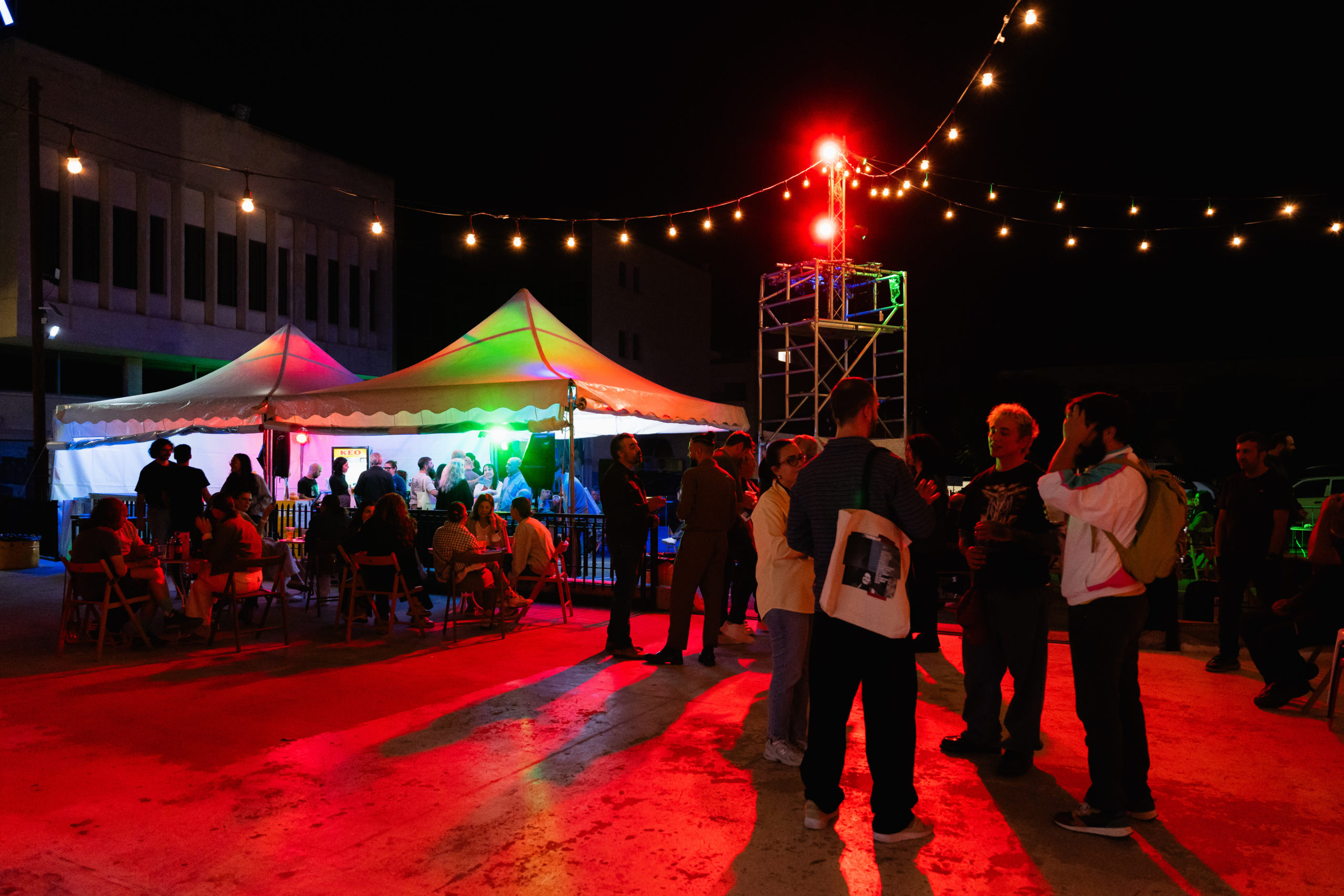Cypriots choose social media for news despite recognising it spreads misinformation
Source: in-cyprus.com
Social media and television each attract 72% of Cyprus news consumers, leading audience preferences for information sources, according to a Cyprus Journalists Union survey presented on Monday in Nicosia.
Online portals follow with 45% and radio with 43%. Local print press attracts 15%, Greek press 10%, and foreign press 9%, according to the research conducted by Cypronetwork in July using a stratified representative sample of 1,000 people across Cyprus.
The survey revealed a paradox: whilst social media and television dominate audience preferences, both platforms lead in distributing fake news, according to respondents.
Online portals and radio follow traditional media in audience preferences
When asked which media they use most for information, four in 10 respondents cited social media, showing an upward trend compared with previous years, whilst nearly three in 10 cited television, showing a downward trend, Cypronetwork president Christos Michailides stated. Two in 10 cited online portals, whilst radio and print press showed significantly lower percentages.
In media evaluation, television and radio received the highest ratings with 41% and 39% positive assessments respectively. Social networks ranked third at 32%, whilst print press received 27% positive assessment and online portals 28%.
Radio scored highest on quality and reliability indicators compared with online portals and social media, Michailides stated. Portals and social media showed comparatively lower percentages than traditional media on quality and reliability measures. Negative percentages generally exceeded positive ones on reliability and quality indicators, he noted.
Overall media evaluation in Cyprus showed positive indicators ranging from 32% to 39%, whilst moderate assessments reached 50% for some outlets, Michailides stated. “Negative indicators here are much lower compared with positive ones.”
Regarding fake news penetration, 21% responded “very much”, 23% “much”, and 37% “neither much nor little”. Such news appears most frequently on social media and online portals, according to respondents.
Survey findings showed 36% versus 48% disagreed that media are credible. Some 42% agreed they trust Cypriot journalists versus 45%, whilst 41% agreed journalists abuse power and 24% disagreed. Some 30% agreed Cypriot journalists are credible whilst 40% disagreed.
Some 27% consider Cyprus media credible versus 45%. Some 30% consider media companies understaffed versus 18% who disagreed. Regarding job insecurity in media, 51% stated they did not know and 35% agreed, whilst 27% agreed Cypriot journalists have freedom of expression when 43% disagreed and 35% said they did not know.
When asked which media they would use for information about upcoming parliamentary elections, 45% cited television, 21% social media, 12% online portals, followed by radio and print press.
Regarding whether the electorate is manipulated, 69% of respondents believe manipulation occurs and 25% believe it does not. Respondents identified the government, political parties, media owners, journalists and pollsters as manipulation sources, in that order.
At the professional level, journalists scored 27%, considered a good professionalism indicator, Michailides stated.
Journalists cite understaffing as Cyprus media’s biggest weakness
Regarding the survey addressing journalists, Michailides stated that when asked about impressions before working professionally, seven in 10 had better impressions before entering the field.
Cyprus journalism’s main weaknesses are understaffing, media viability and freedom of expression, whilst strengths include critical thinking, press freedom and deep investigation, though 30% responded they did not know, he stated.
When asked how free they feel to write and publish what truly concerns and worries them, 44% answered “quite”, 18% “little”, 14% “not at all”, and 23% “very”.
Six in 10 journalists wish to complete their professional careers in journalism whilst four in 10 are seeking or will seek other work. Regarding job security, 19% stated they feel “very” secure, 29% “quite”, 36% “little”, and 18% “not at all”.
When asked whether they received direct or indirect threats or warnings about reporting, 44% answered “sometimes”, 29% “never”, 15% “a few times”, and 10% “often”. When asked how they judge media owners’ behaviour, 37% answered “bad”, 32% “average”, 23% “tolerable”, and 6% “good”.
Public identifies government and political parties as primary election manipulators
Cyprus Journalists Union president Giorgos Frangos stated the findings require further study and analysis, containing clear evidence of where the media landscape stands and is heading.
Regarding the large survey, he noted social media and television’s primacy with 72% in audience preferences, emphasising that the same media maintain negative leadership regarding fake news distribution. “This constitutes a contradiction, paradox and anomaly. First rewarding someone with your choices and then criticising them for what they spread,” he stated.
He noted that Cypriot journalists again receive public trust to a greater degree than media owners this year. “They trust us at 42% and our employers at 36%. The gap widened this year compared with previous years.”
This year’s large survey included questions about upcoming parliamentary elections, Frangos stated. “Television emerges as information empress regarding these with 45% of public preferences. Social media follows with 21%, news websites with 12%, and radio together with newspapers receive 3% each. The public recognises that electoral manipulation occurs at 69%. Some 86% attribute this primarily to media owners and 74% to journalists.”
Regarding the internal Cyprus Journalists Union survey addressed exclusively to journalists, the organisation’s president noted that 84% expected things better in the sector than they found, and all recognise that the biggest problem is company understaffing.
“Some 56% of journalists wish to remain in the sector until retirement, but the remaining 44% seek some other professional occupation, less burdensome and more profitable. At the same time, the striking percentage of 69% admits receiving pressure about work content, often, a few times or sometimes. Some 58% of colleagues complain about how much the state supports Cypriot journalism and its practitioners.”
Regarding the union, the Cyprus Journalists Union receives positive assessment from 47% of journalists and negative from 41%, Frangos stated, adding that much must be done that can only be achieved through collective, organised action. “The Cyprus Journalists Union was and remains a bastion of struggle. Utilise it, strengthen it, support it, align with it,” he concluded.
Read more:
The original article: belongs to in-cyprus.com .




